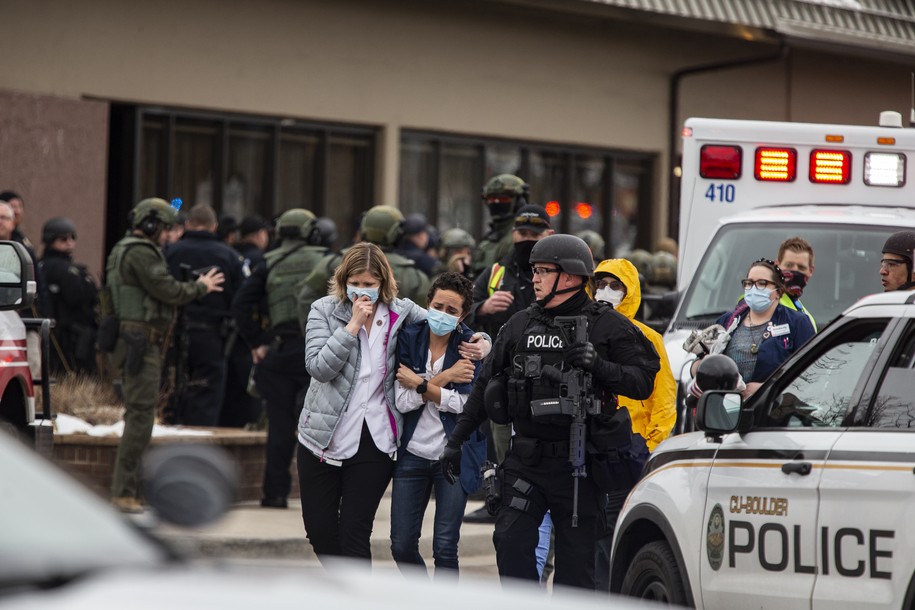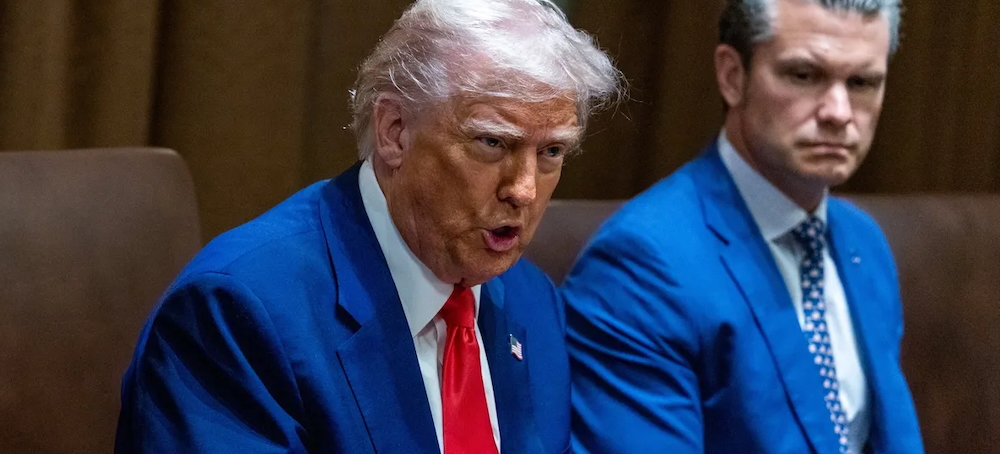
Many things stopped or dramatically slowed in the United States starting in March 2020. Gun deaths were not among them. In fact, 2020 set a 20-year high for gun violence. What stopped—for a while—were the kind of attention-grabbing mass shootings that make headlines, usually because they affect white people in public places for reasons other than domestic violence. The “it could happen to me” shootings, where the “me” in question is writing the headlines.
That kind of mass shooting returned in March 2021, starting with the Atlanta spa shootings—which, while six of the eight people killed were Asian women, were in businesses where more customers (white ones) could have been killed—then moving to the Boulder, Colorado, supermarket shooting that killed 10 people, and most recently to the eight people killed in an Indianapolis FedEx facility. But while those have made the headlines, they’re far from the sum total of gun violence—or even of mass shootings—in the U.S. during this time.
And none of it has been enough to shift Republican lawmakers to be willing to vote for even the most modest and popular gun law reforms, like universal background checks.
There were four other mass shootings that killed four or more people between Boulder and Indianapolis, Eric Boehlert points out at Press Run. Five people killed in Essex, Maryland, on March 28; four in Orange, California, on March 31; six in Rock Hill, South Carolina, on April 7; six in Allen, Texas, on April 13. In the just over a month since the Atlanta shootings, there have been at least 50 mass shootings in the U.S., which are defined as shootings that injure or kill four or more people not including the shooter.
And mass shootings are not the only way people are killed by gun violence, even terrifyingly random gun violence. On Sunday, a 7-year-old girl was shot and killed in a car at a McDonald’s drive-thru in Chicago, and a 29-year-old man in the same car was also shot.
Over the course of the same weekend, three people were shot and killed in one incident in Austin, Texas, but, hey, it’s okay because it was an isolated “domestic situation.” The suspect in that case is a former sheriff’s office detective who was charged last year with sexually assaulting a child. Three people were killed and three were wounded in a shooting in a bar in Kenosha, Wisconsin. One person was killed and five people were wounded in a shooting at a vigil for a shooting victim in Columbus, Ohio. One person was killed and another was wounded in a shooting at a mall in Omaha, Nebraska. Six people were injured in a shooting at a 12-year-old’s birthday party in LaPlace, Louisiana.
That’s one weekend.
“We can’t give up. One hundred Americans are shot and killed every day. Hundreds more are wounded,” Moms Demand Action co-founder Shannon Watts told The Washington Post. “This isn’t something where anyone can afford to sit on the sidelines and just say, ‘This is the way it is.’”
Voters are divided on that, though. The vast majority favor some changes to gun laws, like universal background checks. But decades of campaigning by gun lobby groups have left us in a situation where, depending how you word the poll question, 34% to 42% of people think current gun laws are, you know, fine. If you ask people about background checks they say yes, but it’s not a high-intensity position, and the people who want even looser gun laws are the most likely to see guns as one of their top political priorities.
But we can’t just give up and say this is the way it is on public opinion, either. Again, there has been a very well-funded, decades-long campaign by gun lobby groups to get us to this point. That campaign has given people a big pile of readily available talking points in favor of unfettered, unregulated gun sales and ownership, while the arguments for more limits and regulation aren’t as well aired. Like, say, this:
Then, of course, you have a unified Republican Party, and a media not eager to advertise “the fact that a key reason Republicans don’t face a ‘backlash’ is because the press routinely portray GOP's obstruction as mere ‘gridlock,’ or ‘Washington’ being unable to pass laws,” as Boehlert points out.
That Republican unity on the issue gets us back to that pro-gun campaign: “By the way, how radical of a shift is today's GOP behavior on guns? Note that in 1999, 31 Senate Republicans voted in favor of mandating background checks at gun shows,” Boehlert writes. “And in 1994, 42 House Republicans voted for the Crime Bill, which included a ban on assault weapons. But all of that context gets left out of gun reform coverage today, as the press pretends Republicans have always been uniformly opposed to new laws to protect citizens.”
The United States didn’t get to this level of gun violence problem by accident. Getting us out of it will take serious work—and part of that work is being entirely clear about who is standing in the way of improvement.



No comments:
Post a Comment